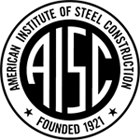Shear Studs In Stainless Steel
In stud welding, shear studs are used to secure framed buildings by creating a shear connection between steel and concrete. These fasteners secure beams and resist loading between concrete and steel components in a composite construction. They provide strong and reliable fastening that’s imperative in many infrastructure applications.
Shear Studs Available For Immediate Shipment
We have a complete inventory of shear studs and bolts that are available for immediate shipment, including plain finish and stainless steel shear studs. A full selection of sizes are available directly through our catalog. Our shear studs meet with ASTM A29 specs and are carefully tested and inspected in-house to ensure quality standards are maintained.
Why Source Shear Studs From BACO Enterprises?
There are many reasons to choose Baco Enterprises as your source for shear studs and other structural components like turnbuckle assembly fasteners and nail in anchors, including our commitment to customer service, prompt order fulfillment, and an assurance of product performance and integrity. We’re able to extend competitive pricing to our customers as a result of our longtime relationships with leading domestic and international fastener manufacturers. All of our business practices are in place to meet your needs quickly and reliably.
What You Can Expect From BACO Enterprises
When Baco Enterprises is your supplier, you can expect to get the products you need quickly. We offer some of the fastest delivery in the business, thanks to our extensive order fulfillment and shipment capabilities. We can even deliver to many areas in the Northeast and Mid-Atlantic in as little as 24 hours, including New York, New Jersey, Connecticut, Pennsylvania, Massachusetts, Rhode Island, Maryland, Delaware, New Hampshire, Maine, Vermont, Virginia.




